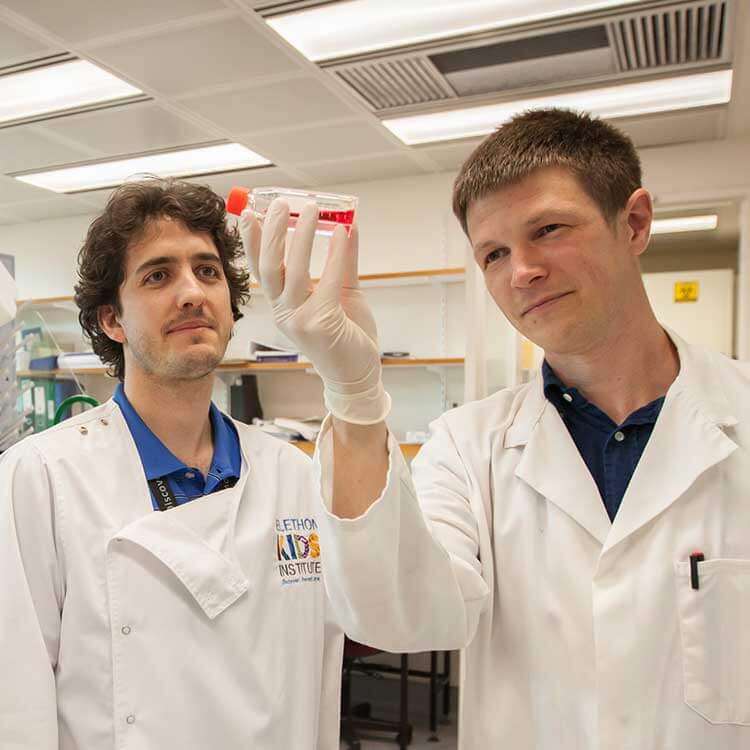Search
Research
LPS binding protein and activation signatures are upregulated during asthma exacerbations in childrenAsthma exacerbations in children are associated with respiratory viral infection and atopy, resulting in systemic immune activation and infiltration of immune cells into the airways. The gene networks driving the immune activation and subsequent migration of immune cells into the airways remains incompletely understood. Cellular and molecular profiling of PBMC was employed on paired samples obtained from atopic asthmatic children during acute virus-associated exacerbations and later during convalescence.
Research
Single cell transcriptomics reveals cell type specific features of developmentally regulated responses to lipopolysaccharide between birth and 5 yearsHuman perinatal life is characterized by a period of extraordinary change during which newborns encounter abundant environmental stimuli and exposure to potential pathogens. To meet such challenges, the neonatal immune system is equipped with unique functional characteristics that adapt to changing conditions as development progresses across the early years of life, but the molecular characteristics of such adaptations remain poorly understood.
Research
Systemic perturbations in amino acids/amino acid derivatives and tryptophan pathway metabolites associated with murine influenza A virus infectionInfluenza A virus is the only influenza virus causing flu pandemics. Influenza is a highly contagious disease that can be deadly, especially in high-risk groups. Worldwide, these annual epidemics are estimated to result in about 3 to 5 million cases of severe illness and in about 290,000 to 650,000 respiratory deaths.
Research
Early Peanut Immunotherapy in Children (EPIC) trial: Protocol for a pragmatic randomised controlled trial of peanut oral immunotherapy in children under 5 years of ageFood allergy is a major public health challenge in Australia. Despite widespread uptake of infant feeding and allergy prevention guidelines the incidence of peanut allergy in infants has not fallen, and prevalence of peanut allergy in school-aged children continues to rise. Therefore, effective and accessible treatments for peanut allergy are required.
Research
OMIP 076: High-dimensional immunophenotyping of murine T-cell, B-cell, and antibody secreting cell subsetsThere is now considerable evidence demonstrating that both prenatal and postnatal exposure to particular classes of microbial stimuli can provide beneficial signals during early life immune development, resulting in the protection against future inflammatory disease.
Research
Metabolic dysfunction induced by a high-fat diet modulates hematopoietic stem and myeloid progenitor cells in brown adipose tissue of miceBrown adipose tissue (BAT) may be an important metabolic regulator of whole-body glucose. While important roles have been ascribed to macrophages in regulating metabolic functions in BAT, little is known of the roles of other immune cells subsets, particularly dendritic cells (DCs). Eating a high-fat diet may compromise the development of hematopoietic stem and progenitor cells (HSPCs)-which give rise to DCs-in bone marrow, with less known of its effects in BAT. We have previously demonstrated that ongoing exposure to low-dose ultraviolet radiation (UVR) significantly reduced the 'whitening' effect of eating a high-fat diet upon interscapular (i) BAT of mice.
Research
Developing a Standardised National Model of Care for Treatment of Peanut Allergy in Infants: The ADAPT Peanut Oral Immunotherapy ProgramPeanut allergy is the most common food allergy in Australian school-aged children and is rarely outgrown. Access to oral immunotherapy (OIT), a disease-modifying treatment for food allergy, is limited in many regions of the world, including Australia.
Research
Boosting airway T-regulatory cells by gastrointestinal stimulation as a strategy for asthma controlThe hallmark of atopic asthma is transient airways hyperresponsiveness (AHR) preceded by aeroallergen-induced Th-cell activation.

The Pregnancy and Early Life Immunology team's overall research vision is targeted towards understanding immunological development during early life.
Research
Epigenetic changes underpinning allergen sensitization: a twin-based studyWe are studying immune cells from identical twins of which one suffers and one does not suffer from allergic disease to identify specific mechanisms that may play important roles in disease development.
